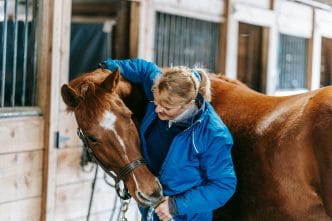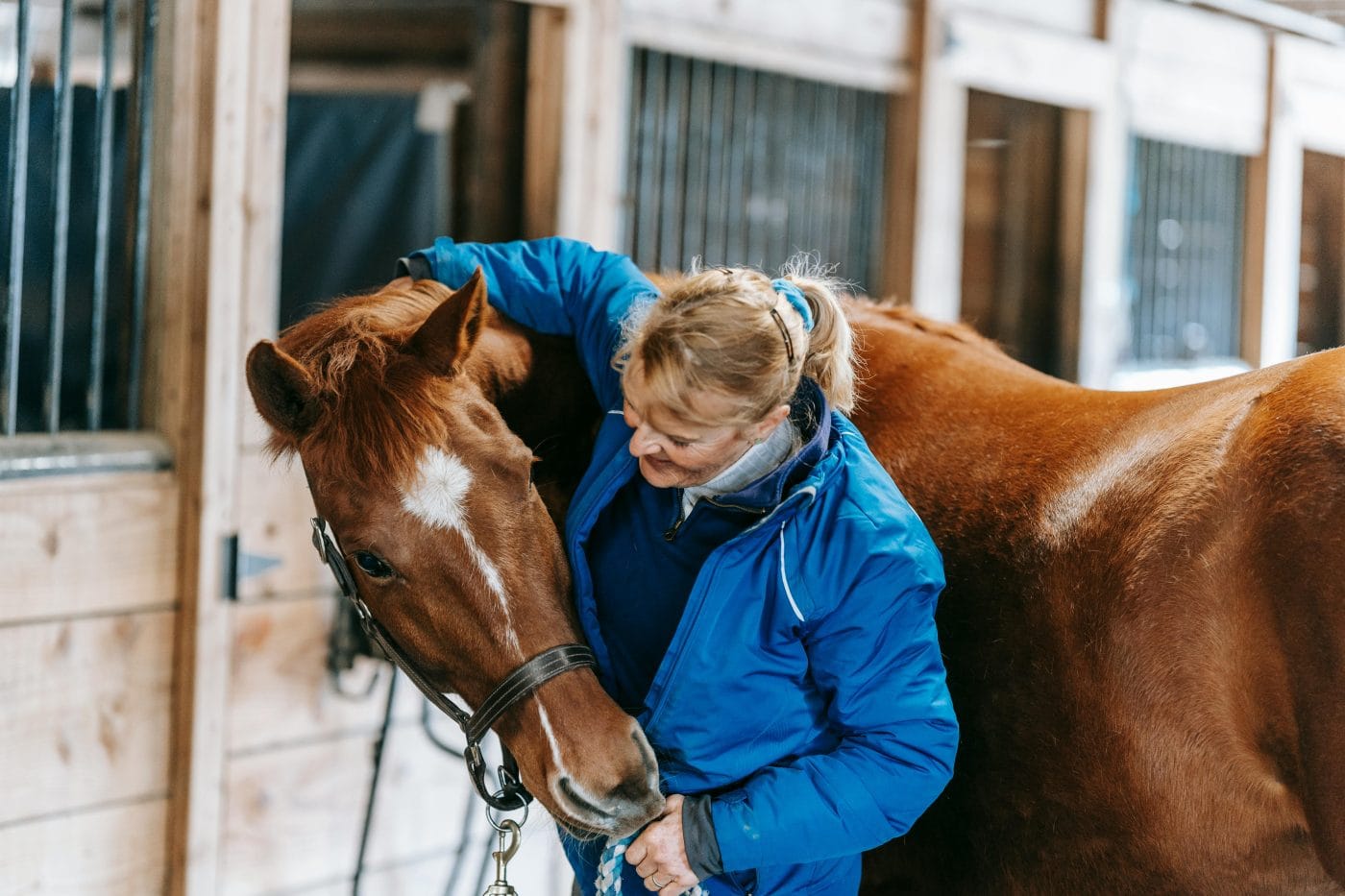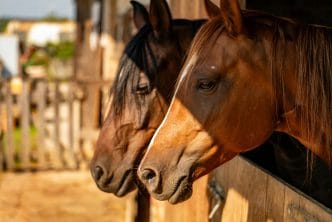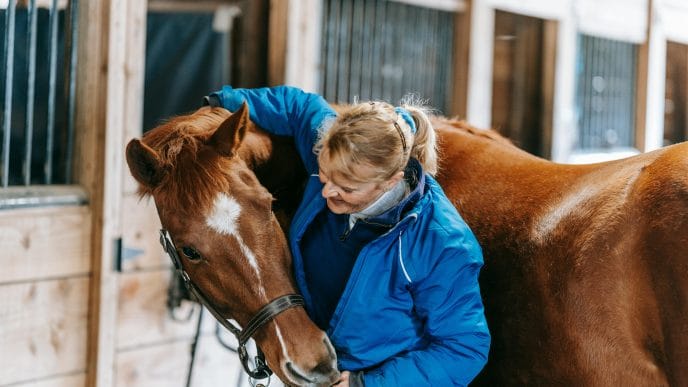The Canadian Therapeutic Riding Association (CanTRA) sits at the center of Canada’s therapeutic riding ecosystem — setting standards, certifying instructors, and accrediting centres so that people and horses can work together safely and meaningfully.
This guide explains what CanTRA does, how its certifications work, and how families, riders, and clinicians can use CanTRA information to make confident choices.
What Is CanTRA?
CanTRA is a Canadian registered charity founded in 1980 to promote “challenge, achievement and empowerment” for children and adults with disabilities through the horse. It also provides education and instructor certification for therapeutic riding professionals.
CanTRA is a Federation Member of HETI (Horses in Education and Therapy International), reflecting its connection to global standards in equine-assisted activities.
Across the country, 60+ member centres deliver therapeutic riding and related programs each year, supported by thousands of volunteers—evidence of a broad, community-based network rather than a single clinic.
What CanTRA Actually Does
In practical terms, CanTRA focuses on three pillars:
- Instructor Certification
CanTRA administers an internationally recognized certification pathway for therapeutic riding instructors, with four levels that progressively build teaching and horsemanship competencies. - Program Accreditation and Membership
Centres that meet CanTRA standards can become accredited program members — a process that pairs instructor credentials with facility standards for safety, risk management, and horse welfare. Accreditation and instructor certification are designed to go hand-in-hand. - Education and Community
Through courses, updates, and national events (including its 45th-anniversary conference in 2025), CanTRA acts as a hub for knowledge sharing across Canada’s therapeutic riding community.
How CanTRA Certification Fits with Canadian Equestrian Pathways
In addition to its own pathway, CanTRA interfaces with the broader equestrian system in Canada. Equestrian Canada lists CanTRA among recognized coaching and certification programs, acknowledging quality benchmarks that align with national coaching standards—even though the organizations remain distinct.
For riders and families, this matters because it clarifies who is qualified to teach what:
- CanTRA certification signals competency in adaptive instruction and therapeutic riding pedagogy.
- Clinical services (for example, hippotherapy with PT/OT/SLP, or psychotherapy) require separate, licensed clinicians; a good centre will collaborate across credentials and make those boundaries clear. (See our site’s “Types of Equine Therapy” page for distinctions.)
What You Can Expect at a CanTRA-Accredited Centre
While each barn has its own culture, accreditation points toward common threads:
- Safety for people and horses. Expect fitted helmets, adaptive tack, mounting ramps/lifts, trained volunteers, and a horse-welfare ethic that includes screening, workload management, and rest. (Accreditation is a requirement for CanTRA program membership, which ties facility standards to instructor qualifications.)
- Qualified instruction. Lessons are led by certified instructors who can scale activities for a wide range of abilities and goals.
- Clear scope of practice. Adaptive riding (education) is distinct from clinical therapy; centres that offer clinical services will do so through licensed professionals or in partnership. (Use our checklist to ask programs how they handle this boundary.)
How to Use CanTRA When You’re Deciding
- Find credible centers. Use CanTRA’s member listings (or ask a local barn whether they are CanTRA-accredited). Centres often highlight this status on their websites and materials.
- Check instructor credentials. Ask which CanTRA level your instructor holds and when it was last renewed. CanTRA publishes information and prerequisites for each level, so you can understand what the credential means.
- Ask about horse welfare. A strong program will describe how horses are selected, trained, rotated, and rested, and how sessions change when a horse signals stress.
- Clarify your goals. If your aims are clinical (balance, gait, speech, or psychotherapy), verify that a licensed clinician is involved. If you’re seeking adaptive riding/education, a CanTRA-certified instructor at an accredited centre is the right match.
Why CanTRA Matters (Even If You’re New to Horses)
For newcomers, the barn can be both exciting and intimidating. CanTRA provides a trusted minimum standard — a way to know that the people teaching you are trained for adaptive instruction and that the facility has been reviewed for safety and welfare practices. In a field with varied terminology, that clarity helps families and clinicians choose programs that align with goals, scope, and ethics.
A Note on Scope Beyond Riding
Therapeutic riding is the heart of CanTRA’s mission, but Canadian centres often sit within a local ecosystem that includes equine-assisted learning, para-equestrian sport development, and collaboration with healthcare providers. That mix reflects Canada’s diverse geography and community-driven programs—and it’s one reason the network has grown to dozens of member centres nationwide.
Quick FAQ
Is CanTRA the same as a clinical therapy license?
No. CanTRA certifications validate teaching and adaptive riding competencies. Clinical treatment requires licensed health professionals (for example, PT/OT/SLP or mental-health clinicians).
Does CanTRA accredit every barn with horse programs?
No. Accreditation is specific to centres that meet CanTRA standards; many barns offer riding but are not therapeutic riding centres.
How does CanTRA relate to international bodies?
CanTRA is a Federation Member of HETI, the global network for equine-assisted services, which helps align Canadian practices with international dialogue and ethics.
Conclusion
When you see CanTRA on a program’s website, you’re looking at more than a logo. You’re seeing a commitment to safety, education, and horse welfare, backed by a national network with decades of experience. If you’re deciding whether equine-assisted work is right for you or someone you love, use CanTRA as a compass: find accredited centres, verify instructor credentials, and choose the setting that matches your goals — clinical, educational, or both.
For more information, visit a CanTRA center and start your child on therapeutic riding.
Canadian Therapeutic Riding Association
Address: 5420 Side Road 6, Guelph, ON N1H 6J2, Canada
Phone:+1 519-767-0700
Website: www.cantra.org










